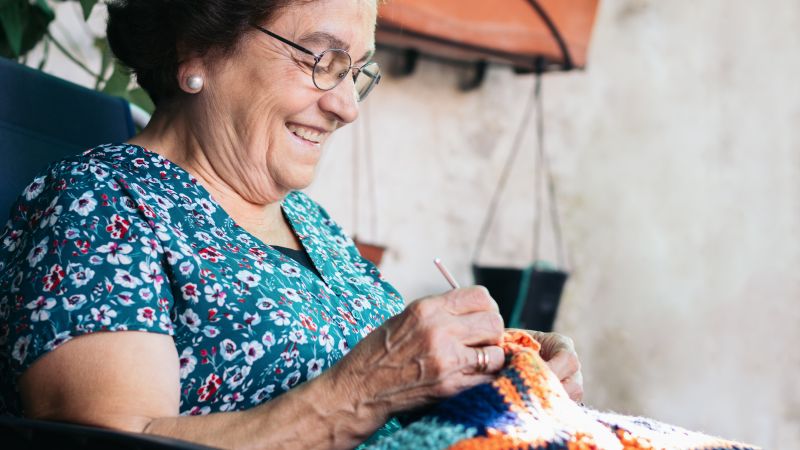Transfer of benefits reaches major milestone

Over 200,000 disabled adults have now had their benefit award transferred to Social Security Scotland from the Department for Work and Pensions, new figures show.
Almost two thirds (63%) of adults in Scotland who were previously getting Personal Independence Payment are now receiving Adult Disability Payment.
This marks a milestone in the ambitious project to safely and securely transfer the disability and carers benefit awards of everyone in Scotland, allowing them to benefit from a new system based on dignity, fairness and respect.
Adult Disability Payment was designed in partnership with disabled people to be better than the benefit it is replacing.
A significant improvement was ending the time-consuming and demanding re-assessments carried out by the DWP to decide if someone’s support should continue.
In Scotland these have been replaced with light touch reviews that ensure people are getting the right support without requiring them to provide unnecessary information or face a private sector assessment.
All disability and carer benefits are expected to be transferred to Social Security Scotland by the end of 2025, with benefit awards for disabled children already fully transferred.
A recent survey found almost 90% of people who had their disability benefit moved to Social Security Scotland said they were informed about the process and the communication was clear.
Shirley-Anne Somerville, Cabinet Secretary for Social Justice said:
“This is an important milestone in the devolution of benefits to Scotland.
“People who received DWP benefits talked about the system being inhumane. They had experienced a system which did not get the decision right first time and which involved degrading assessments run by private providers.
“That worry is over for many now as we have moved the awards of hundreds of thousands of people to our new system, where they can benefit from its founding principles of dignity, fairness and respect.
“Adult Disability Payment was designed in partnership with disabled people to be better, fairer and easier to access.
“We are continuing to transfer the awards of disabled people from the DWP to our new system.
“If you are waiting to have your award transferred, please be assured that you do not need to do anything. The move will begin automatically and there will not be any gaps or changes to your payments.”
Sylvia Paton who is registered blind, said:
“A lot of people have been put through an assessment process where it feels as though staff are trying to trip you up and implying you are lying about your disability.
“The DWP made me go for a medical assessment. We went into a room with a window facing the door and it was an instant white out for me.
“The lady said, ‘Take a seat,’ but I couldn’t see one and she didn’t tell me where it was. It was just awful and humiliating. It was all about ticking boxes with no understanding of my medical condition.
“I didn’t experience anything like that going from PIP to Adult Disability Payment. It was very automatic and painless.”
James Kyle, 41, delayed telling the DWP about his deteriorating eyesight due to his “traumatic” experiences with them.
James, from Cumbernauld, said:
“My condition impacts on anything which requires me to see fine detail. Reading is particularly challenging and using the cooker and the washing machine can be a problem.
“Recognising people and threatening situations are also difficult and I try not to travel at night or go places I’m not familiar with. I stick to fixed routes I know very well and rely a lot on taxis.
“My eyesight had deteriorated but I didn’t want to put myself through a review, even if it meant I would get more money, because of the emotional trauma I’d been put through. There was also the fear of losing what I was already getting.
“I heard Adult Disability Payment wasn’t as bad so I decided to report a change in circumstances which I knew would trigger my transfer from DLA.
“There was a long form to complete but when I asked for help a gentleman went through the form with me on a video conference call. I couldn’t have asked for a better service and my payment was uprated.”
Kirstie Henderson, Policy Officer at RNIB Scotland said:
“We are delighted the Cabinet Secretary has visited, as it is vitally important that we listen to the experiences of blind and partially sighted people about social security benefits.
“Overall the experiences of people we’ve spoken to about their transfer to Adult Disability Payment has been positive, however there is always room for improvement.
“They have told us about the importance of receiving information in an accessible format, and being made aware of the support available to help claim what they’re entitled to.
“Access to information in accessible formats is a key principle - it allows people to take control of their own decisions.
“RNIB Scotland will continue to work closely with those delivering social security, ensuring the needs of blind and partially sighted people continue to be met.”
Background
Adult Disability Payment: high level statistics to 31 July 2024
Adult Disability Payment provides money to help cover the extra costs of being disabled, terminally ill or having a long-term health condition.
It is the replacement for Personal Independence Payment in Scotland.
As of 31 July 2024, 207,295 people had their award transferred to Adult Disability Payment.
The transfer of disability benefits from DWP to Social Security Scotland was designed to make sure people would not experience any gaps or changes in payments.
When someone’s award is chosen for transfer they get a letter from the DWP and Social Security Scotland. Once the move is complete Social Security Scotland get in touch to let them know.
Accessibility
We are committed to ensuring that the social security system is as accessible as it can be, which is why our information is available in different formats.
Blind people applying for benefits can ask for the communications Social Security Scotland sends to be written in braille or large print. Letters can also be sent in an alternative format such as an audio recording or Easy Read. People interested in working with us, can apply for our jobs in braille.
Online content is compatible with screen reader software including Jaws, Voiceover and Non Visual Desktop Access (NVDA) platforms. When required, Deafblind Interpreters can be arranged for BSL users.
Social Security Scotland run a text Relay Service, which people can access by dialling 18001 +0300 244 4000 to support those who are hard of hearing.
People with sight loss can book an appointment with one of Social Security Scotland’s local advisers at a time, place and venue that suits them. They can help clients to complete online or paper application forms, offer support with identification and document verification and help with submitting change of circumstances information.
If deaf people need extra support to apply for Scottish benefits, they can also get support from the Independent Advocacy Service, delivered by VoiceAbility, who provide advocacy throughout the whole of the process from the point of application, through to any request for redetermination and appeals.
People can access this support by contacting VoiceAbility directly for free on 0300 303 1660 or by visiting voiceability.org. Alternatively, they can ask us to refer them by calling us on 0800 182 2222. VoiceAbility provide information in various formats, including British Sign Language.
Social Security Scotland continues to engage with stakeholders, including RNIB to utilise their expertise to help embed inclusive communication principles in the design and delivery of our services.


